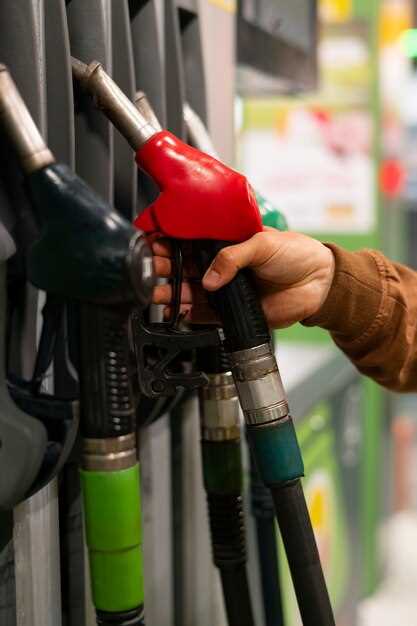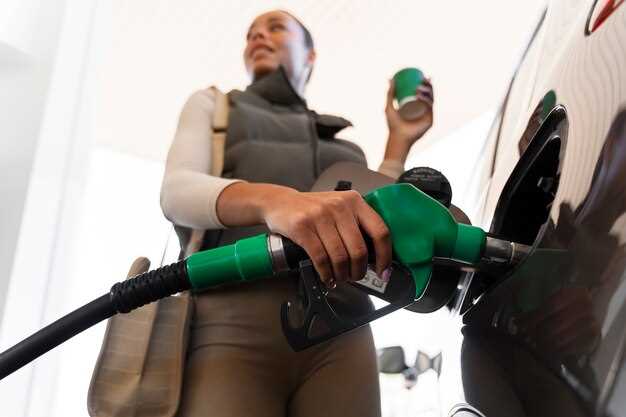
In the automotive world, the choice of gasoline can significantly impact vehicle performance and efficiency. Premium gasoline, typically rated with an octane level of 91 or higher, is often marketed for its potential benefits. However, understanding both the advantages and disadvantages of using premium gasoline is crucial for consumers aiming to make informed decisions about their fuel choices.
One of the primary advantages of using premium gasoline is its ability to improve engine performance, particularly in high-performance and luxury vehicles designed to run on higher octane fuel. Many manufacturers recommend premium gasoline for these engines to prevent knocking, enhance acceleration, and maintain optimal fuel efficiency. Additionally, premium gasoline may lead to improved mileage under specific driving conditions, making it an attractive option for some drivers.
However, the use of premium gasoline is not without its drawbacks. The higher price point of premium fuel compared to regular gasoline can lead to significantly increased fuel costs, especially for drivers who frequently refuel. Moreover, many modern engines are designed to operate efficiently on regular-grade gasoline without sacrificing performance. In such cases, the benefits of using premium gasoline may be negligible, leading consumers to question whether the additional cost is justified.
Ultimately, the decision to use premium gasoline should be carefully weighed against individual driving needs and vehicle specifications. By assessing both the advantages and disadvantages, drivers can determine the most economical and efficient fuel choice for their vehicles.
Impact on Engine Performance and Longevity

Using premium gasoline can significantly influence both engine performance and longevity. The effects depend on the engine design and the fuel specifications. Here are the key impacts:
- Improved Engine Performance:
- Higher octane ratings in premium gasoline allow for more efficient combustion.
- Engines designed for premium fuel can utilize advanced ignition timing, leading to increased power output.
- Reduced knocking or pinging enhances overall performance, especially in high-performance vehicles.
- Enhanced Fuel Efficiency:
- Some studies suggest that using premium gasoline can lead to better fuel economy in high-compression engines.
- Efficient combustion translates to more power generated per unit of fuel consumed.
- Long-term Engine Health:
- Higher-quality fuels often have better additives, which can help clean the engine parts.
- Reduced carbon buildup on critical engine components contributes to less wear over time.
- Potential Drawbacks:
- For engines not designed for premium, using it may yield no significant performance benefits.
- In some cases, it can lead to increased deposits in lower-rated engines, potentially causing issues.
In summary, premium gasoline can deliver advantages in performance and longevity for specific engines. However, the benefits may not be universal, particularly for standard engines not requiring higher octane fuel. Understanding your vehicle’s needs is essential for making informed choices about gasoline type.
Cost-Benefit Analysis for Daily Drivers
When considering the use of premium gasoline for daily driving, it is essential to weigh both the financial implications and the potential benefits to vehicle performance. Premium gasoline typically costs significantly more than regular gasoline, with price differences that can vary by region and market conditions. Daily drivers must evaluate whether the advantages of using premium fuel justify the added expense.
One of the primary benefits of premium gasoline is its higher octane rating, which can enhance engine performance, particularly in high-compression engines. Vehicles designed for premium fuel often experience improved acceleration, efficiency, and overall driving experience. This can be a considerable advantage for performance-oriented drivers who prioritize power and responsiveness in everyday driving.
Additionally, premium gasoline often contains additives that promote engine cleanliness and longevity. These formulations can help prevent carbon build-up and deposits, potentially leading to reduced maintenance costs over time. For daily drivers who plan to keep their vehicles for several years, this factor can be significant when calculating long-term expenses.
However, for vehicles that do not require premium gasoline, the benefits may not offset the costs. Many modern engines are engineered to run efficiently on regular fuel, meaning that using premium gasoline may not yield noticeable changes in performance or fuel economy. Drivers of such vehicles could end up spending more without substantial benefits, making regular gasoline a more cost-effective option.
Another consideration is fuel economy. While some drivers report better mileage on premium gasoline, results can vary depending on the vehicle’s make, model, and driving conditions. If premium fuel does not provide a considerable boost in fuel efficiency, the increased cost will likely outweigh any potential savings from improved mileage.
In summary, the decision to use premium gasoline for daily driving involves careful consideration of vehicle requirements, performance expectations, and overall costs. Daily drivers must analyze their specific situations, taking into account engine specifications and driving habits to determine if the benefits of premium gasoline sufficiently justify its expenses.
Environmental Considerations of Premium Fuel

Using premium gasoline may appear to be an environmentally friendly choice due to its higher octane rating, which can lead to improved engine efficiency. However, it’s essential to consider the broader environmental implications of its production and consumption.
Emissions Analysis: One of the primary environmental concerns associated with premium gasoline is the emissions it produces. While premium fuels are designed to reduce engine knocking and may allow engines to operate more efficiently, they can still result in the release of harmful pollutants. Increased fuel combustion can lead to elevated levels of carbon dioxide (CO2), nitrogen oxides (NOx), and particulate matter, contributing to climate change and air quality issues.
Production Footprint: The refining process for premium gasoline generally requires more energy and resources compared to regular gasoline. This includes the extraction of crude oil, refining processes, and transportation. The entire lifecycle of premium fuel–from well to tank–contributes to greenhouse gas emissions, which can diminish the perceived environmental benefits.
Resource Consumption: Premium gasoline is often manufactured from crude oil that has undergone more intensive refining processes. This can lead to higher resource consumption, including water and energy, raising concerns about sustainability. The production methods can also increase the risk of spills and other environmental hazards, impacting ecosystems near extraction sites.
Alternative Fuels: The growing awareness of environmental issues has prompted many consumers to consider alternative and renewable fuels such as electric vehicles (EVs) or biofuels. These alternatives generally offer a reduced carbon footprint and less harmful emissions compared to traditional and premium fuels. Transitioning towards these options can have a far greater positive impact on minimizing ecological damage.
In conclusion, while premium gasoline may provide certain performance benefits, its environmental considerations cannot be overlooked. Analyzing emission levels, production practices, and resource consumption is crucial in understanding its overall impact on the environment. As consumers increasingly prioritize sustainability, exploring alternatives to premium gasoline may be a more responsible choice for the future.





